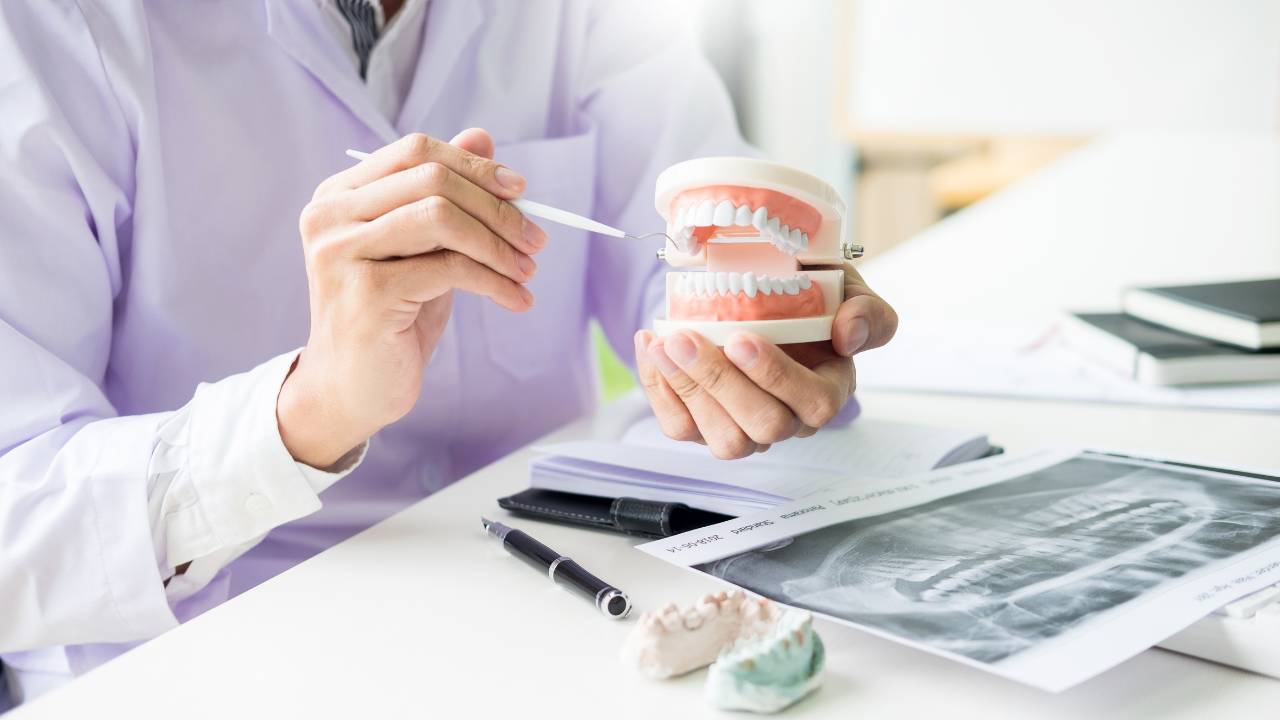
From Brush to Body: The Ripple Effect of Dental Care on Health
Oral health is integral to overall well-being, yet its importance is often underestimated. The mouth serves as a window to the body, offering clues about general health. A look inside or a swab of saliva can tell stories about what's going on in the rest of the body, often serving as a helpful vantage point for detecting early signs of systemic disease. This disease affects or pertains to the entire body, not just one of its parts.
Dental care, therefore, is not just about maintaining a bright smile; it has profound implications on overall health and wellness.
Read on to learn about the ripple effect of dental care on health.
The Mouth-Body Connection
The mouth is teeming with bacteria — mostly harmless. But the mouth is the entry point to the digestive and respiratory tracts, and some bacteria can cause disease. Normally, the body's natural defenses and good oral health care, such as daily brushing and flossing, can keep these bacteria under control. However, without proper oral hygiene, bacteria can reach levels that might lead to oral infections, such as tooth decay and gum disease.
Moreover, certain dental conditions can reflect issues in other parts of the body. For example, ulcers and canker sores might indicate an underlying health issue that requires attention. In this case, consulting a dental professional would be invaluable.
Impact on Cardiovascular Health
The relationship between oral health and cardiovascular disease is complex and significant. Periodontitis, a severe gum disease, is known for causing inflammation and harboring harmful bacteria. These bacteria can enter the bloodstream through bleeding gums, a common symptom of gum disease.
Once in the bloodstream, they can travel to various body parts, including the heart. Here, they may attach themselves to fatty deposits in the arteries, leading to atherosclerosis – a condition characterized by narrowed and hardened arteries. This process heightens the risk of cardiovascular events like heart attacks and strokes.
Additionally, the inflammation caused by these bacteria contributes to the buildup of plaque, which can break off and cause blockages, disrupting the heart's normal function and potentially leading to life-threatening complications.
Diabetes and Oral Health
Diabetes, characterized by high blood sugar levels, impairs the body's ability to fight infection, making the gums more susceptible to infections like periodontal disease. This bidirectional relationship means that not only does diabetes make gum disease worse, but gum disease can also make diabetes harder to control. Inflammation in the gums can lead to increased blood sugar levels, creating a challenging cycle for diabetes management. Regular dental care is essential in breaking this cycle.
By managing gum disease, individuals can help stabilize their blood sugar levels. Conversely, well-controlled diabetes leads to a reduced risk of severe gum disease. Therefore, dental health professionals play a crucial role in the overall health management of individuals with diabetes.
Pregnancy and Oral Health
Pregnancy brings about hormonal changes that increase the risk of developing gum disease, which can have adverse effects on the health of the developing fetus. Periodontitis has been linked to premature birth and low birth weight, both of which can have long-term effects on the child's health. Also, pregnant women with gum disease may experience inflammation that can trigger inflammatory responses elsewhere in the body, potentially leading to early labor.
Maintaining good oral hygiene and regular dental checkups during pregnancy is not just about dental health; it's a crucial aspect of prenatal care. Dentists can guide effective oral hygiene practices and perform treatments to manage gum issues, thereby helping ensure a healthier pregnancy and reducing risks to the baby.
Respiratory Diseases
The mouth can be a breeding ground for harmful bacteria, especially when oral health is neglected. These bacteria, notably from infected teeth and inflamed gums, can be inhaled into the lungs or enter the bloodstream, leading to respiratory diseases. Once in the lungs, these bacteria can cause infections like pneumonia, which is particularly dangerous for the elderly, those with pre-existing health conditions, and individuals with weakened immune systems. These bacteria can also exacerbate chronic diseases like COPD and bronchitis.
Therefore, maintaining good oral hygiene can significantly reduce the bacterial load in the mouth, thereby decreasing the risk of respiratory diseases. Regular dental checkups and cleanings are vital in removing dental plaque and tartar, which harbor harmful bacteria, thus safeguarding against potential respiratory complications.
Takeaway
The importance of dental care extends far beyond the mouth. It's a critical component of overall health and well-being. Regular dental checkups and good oral hygiene can prevent many dental diseases and potentially save individuals from systemic health issues. Just as the ripples in a pond are interconnected, so is the health of the mouth and the body. By taking care of oral health, one is taking a significant step toward maintaining overall health.

Comments (0)